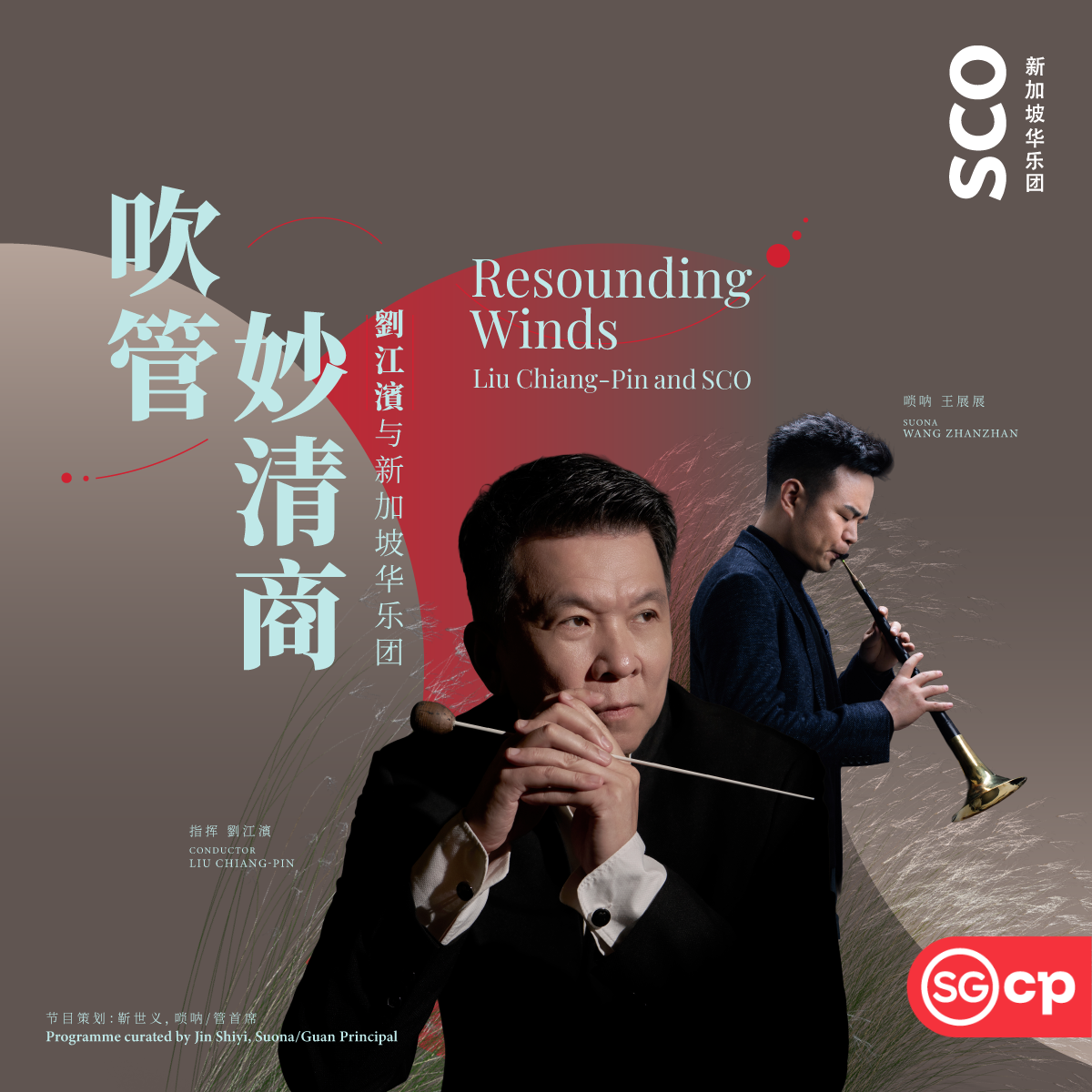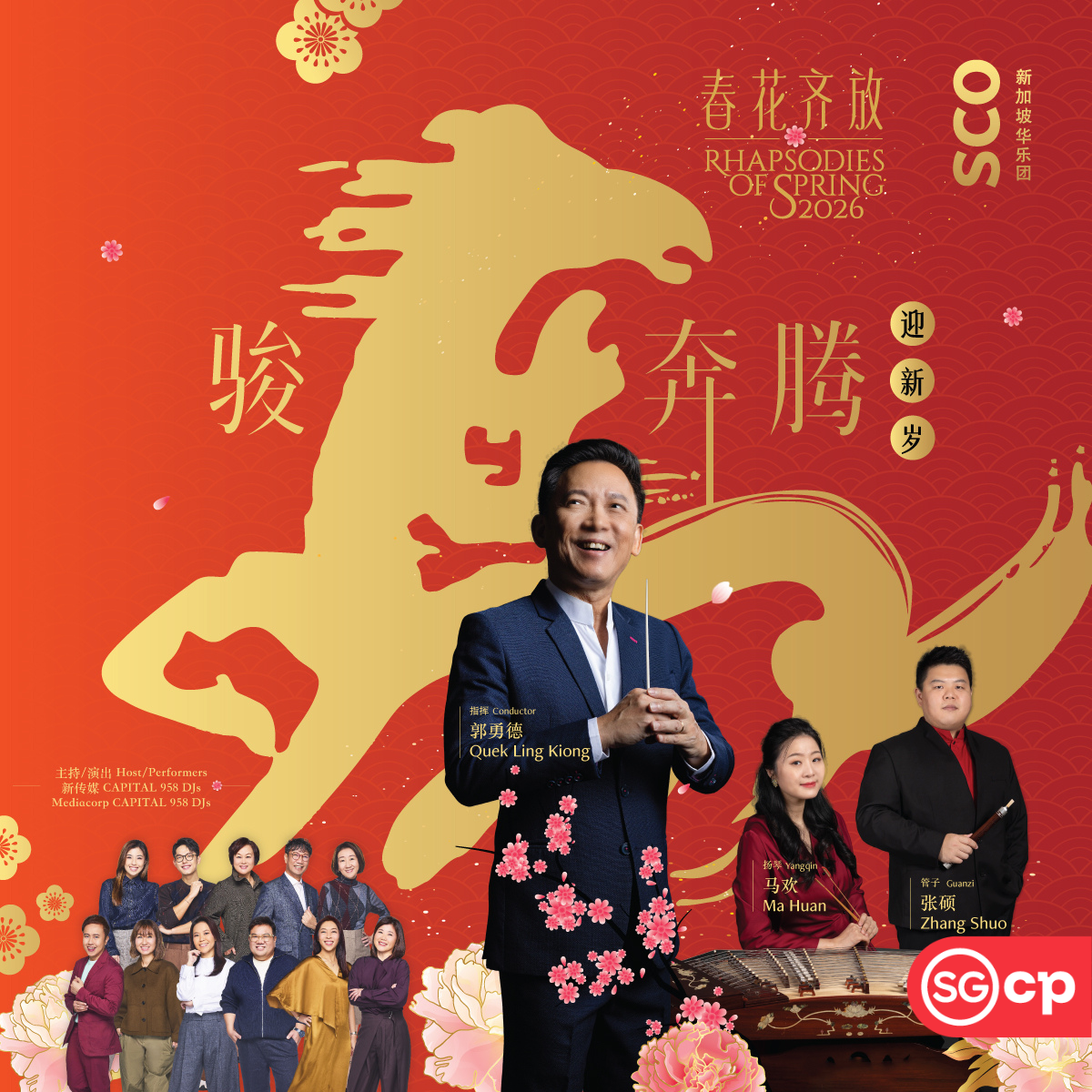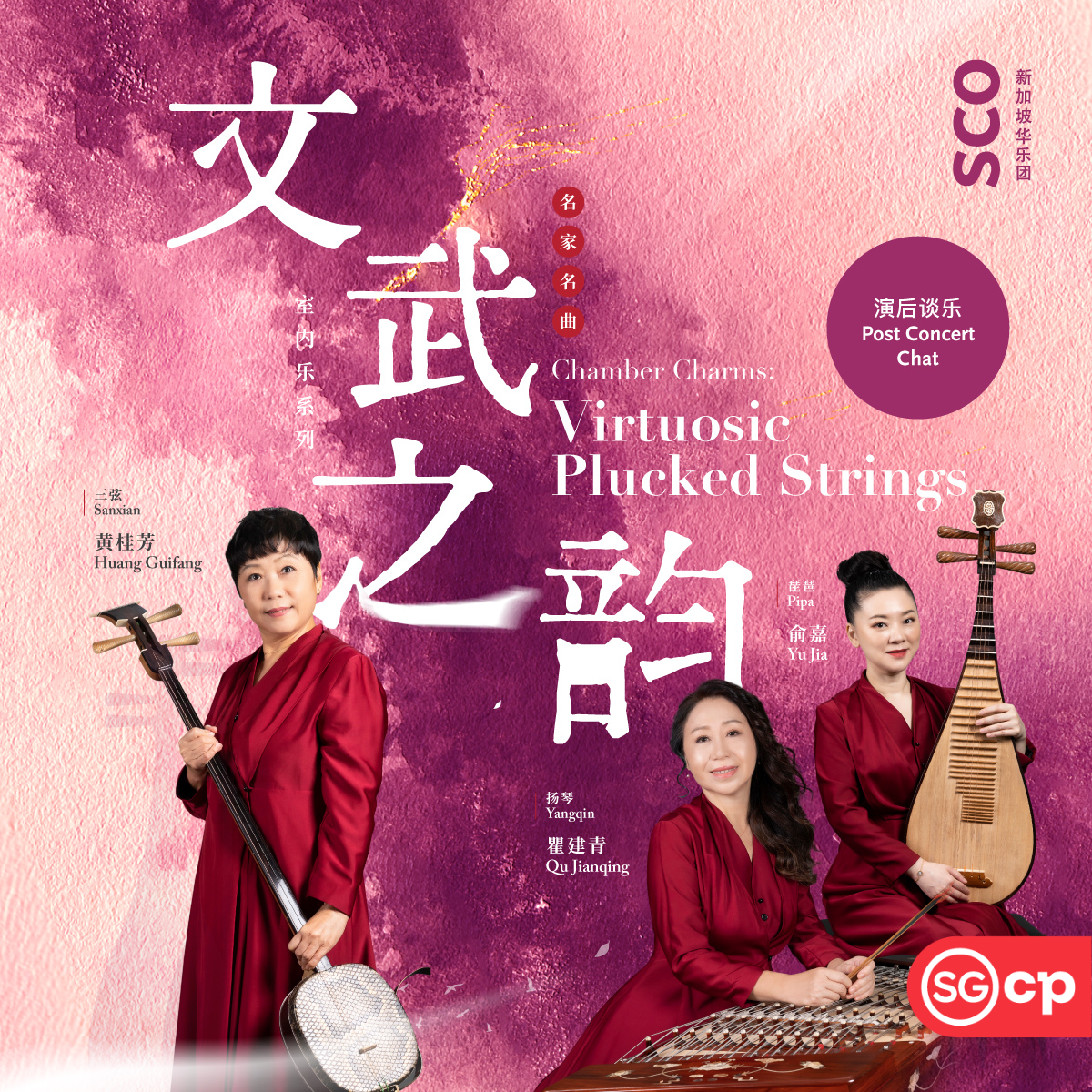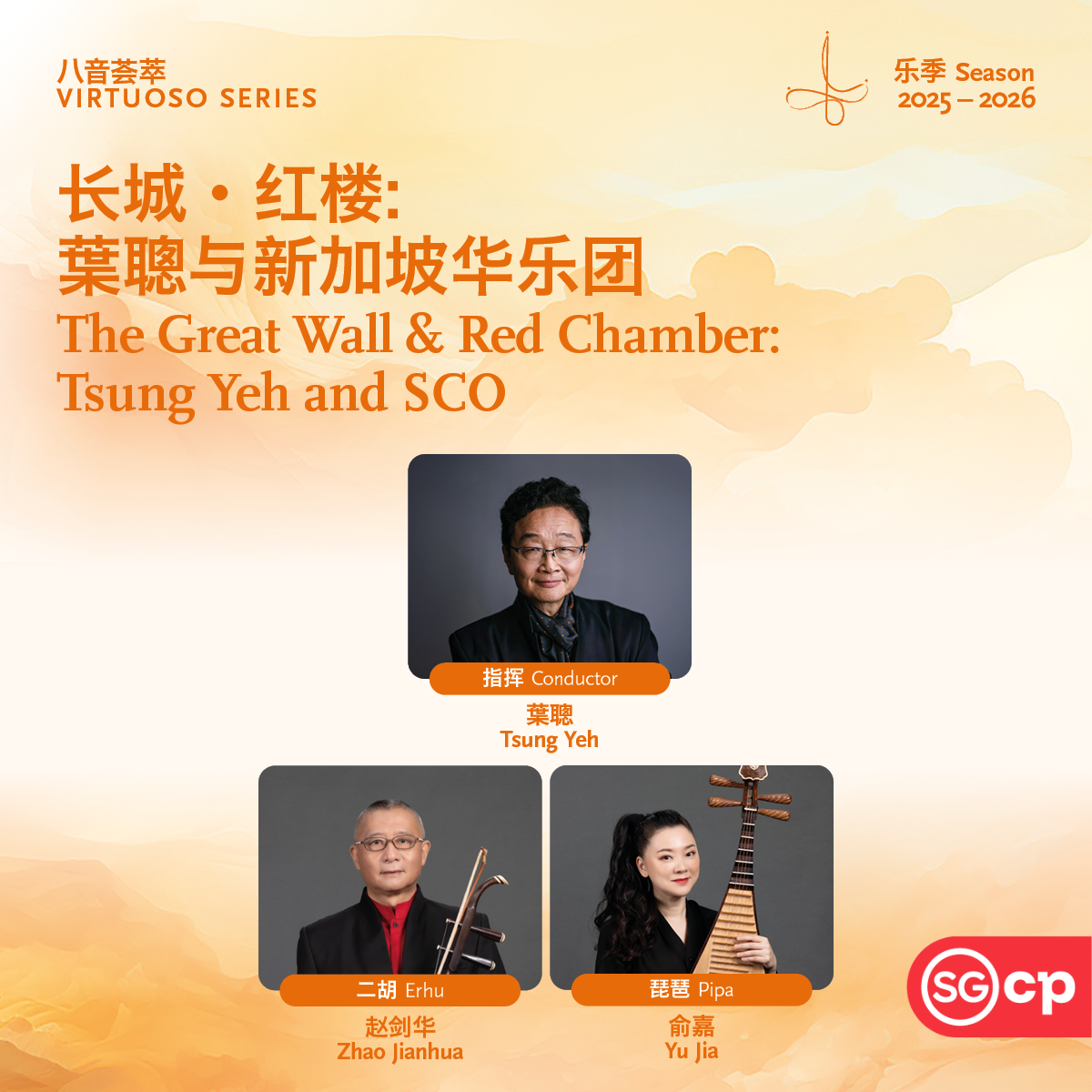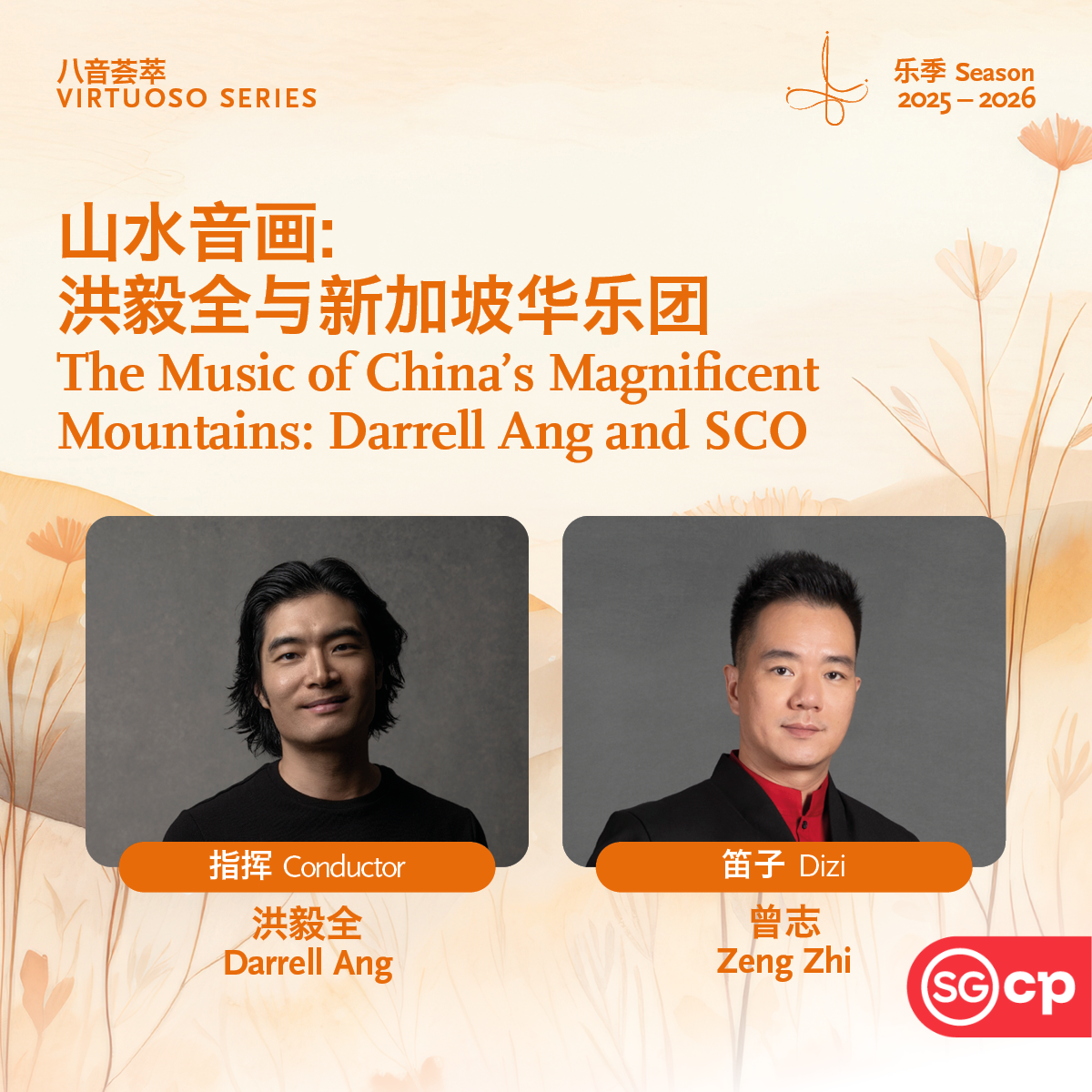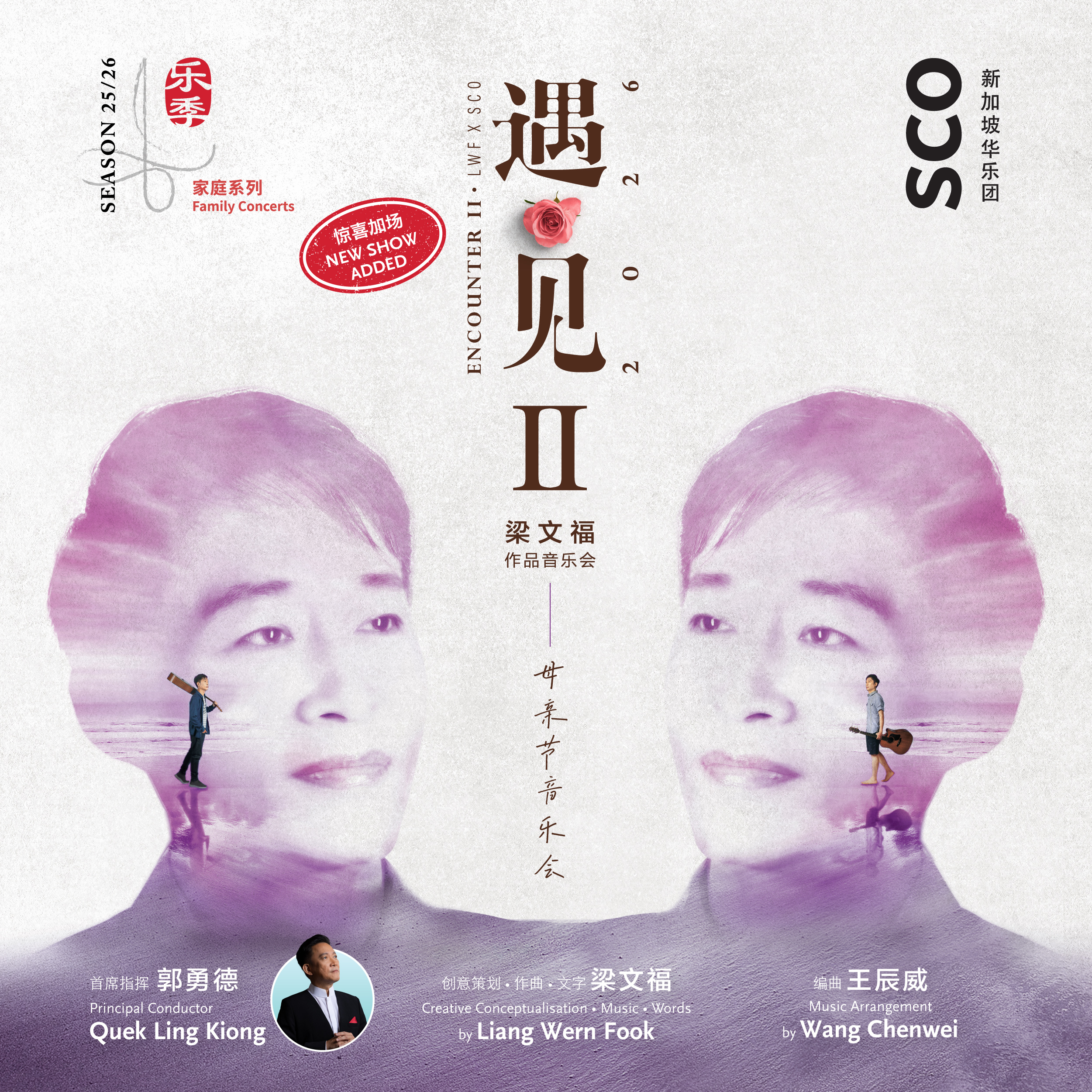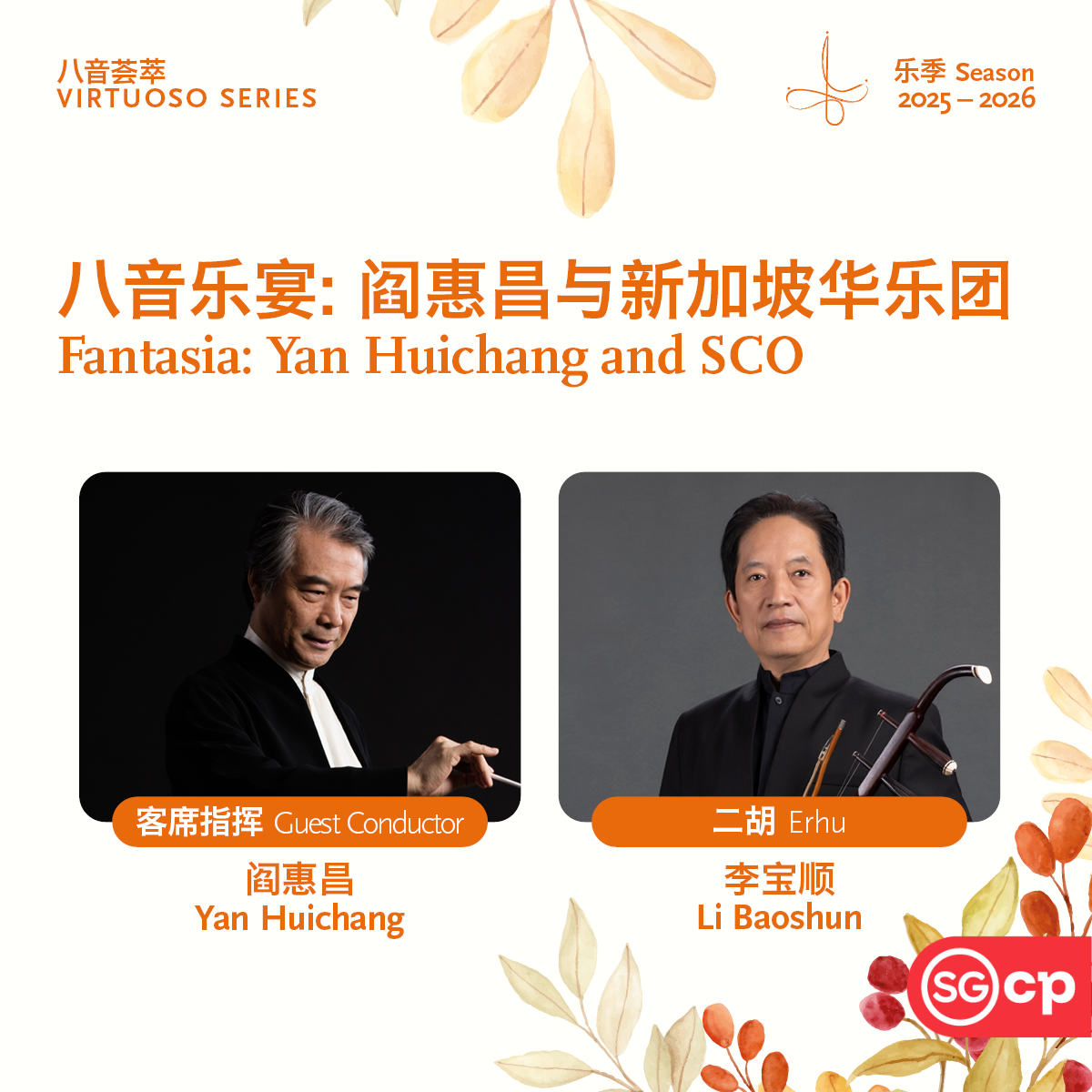Spanning over a decade of creativity, this concert brings together seven emblematic works by emerging Chinese composer Li Bochan. Each piece unfolds from an intimate emotional seed while the audience journeys inwards, tracing the contours of the composer’s evolving emotional and spiritual landscape, a place where solitude, longing, memory and hope converge in sound.
The concert opens with Original Aspiration – a work that signifies the emotional wellspring from which the entire programme draws. From a simple, supple melodic theme, it gathers energy and momentum, eventually swelling into a broad musical current. Commissioned for the 2019 China Golden Bell Award Erhu Competition, this piece was composed at a pivotal moment in Li’s life when he left his native Beijing to teach at the Shanghai Conservatory of Music. It offers a quiet reckoning with one’s beginnings.
The Encounter of Passion and Indifference, composed in 2015, is a double dizi concerto that stages an emotional tension between two temperaments – one burning with intensity, the other withdrawn and restrained. The two voices entwine, confront, and finally dissolve into one another, evoking a psychological duality drawn from the composer’s student years. This inner dialectic, rendered through breath and timbre, would become a hallmark of Li’s evolving musical language.
Ode to Hero · Ode to Love, one of Li’s most widely performed works in Singapore, returns in its original form as a double erhu concerto. Inspired by the legendary farewell between Xiang Yu and Consort Yu some two millennia ago, the work conjures two musical identities – one heroic, one tender, woven together in expressive counterpoint. Rather than quoting folk melodies from the historic Chu region, Li approaches the timeless themes of heroism and love with personal candour, allowing the twin erhus to voice both mythic grandeur and private vulnerability.
Opening the second half, Pining in Blue was the first piece that Li composed after relocating to Shanghai. In its quiet lyricism, it forms a gentle pair with Original Aspiration – a coda to departure and Pining in Blue as a prelude to renewal. Here, melody flows like water: unhurried, translucent, carrying the weight of memory with a lightness that lingers. Its dreamlike timbres – woven from vibraphone and glockenspiel – have become a signature of Li’s musical language, echoing across several works in the repertoire. In the final bars, a humming human voice floats away like mist, as if memory itself were vanishing into wind, mountain, and cloud.
Ode to Hou Yi, composed in 2018 as the fifth movement of Li’s symphonic epic Hero, draws on the myth of the archer who shoots down the suns to save the world. The banhu takes centrestage, joined by bowed strings and percussion to evoke an image of the archer and bow together, weapon and will. Through this vivid instrumentation, the piece expresses a spirit of defiance and resilience in the face of overwhelming natural forces. Brief moments of lyricism concoct the figure of Chang’e – goddess of the moon and adds softness to the work’s heroic charge.
Late Autumn, first composed in 2014 for pipa and piano, carries the mood of the season in which it was born. There is no storyline, only a quiet, lingering emotion that drifts like falling leaves. Later arranged for Chinese orchestra, the piece paints its autumnal mood through the pipa’s lyrical voice and finely textured ensemble writing.
Centennial Nirvana, originally composed in 2021 as the fourth movement of Ode to the Martyrs of Longhua, was later reimagined by Li as a concerto for suona and Chinese orchestra. Structured in two arcs “centennial” and “nirvana”, the work reflects both remembrance and rebirth. Led by the suona as a symbolic and mythic phoenix, the music rises into a vision of ascension and renewal. As the culminating work of the evening, it brings the programme to a close with fervent calls for light, dignity and the spirit of endurance.
From an intimate beginning, the programme moves through inner dialectics and quiet questions, yearning and heroic dreams, before it rises into transcendence. Each piece distills a turning point in the composer’s inner life, transforming solitude into sound, reflection into resonance, finding its way into the listener’s heart.









